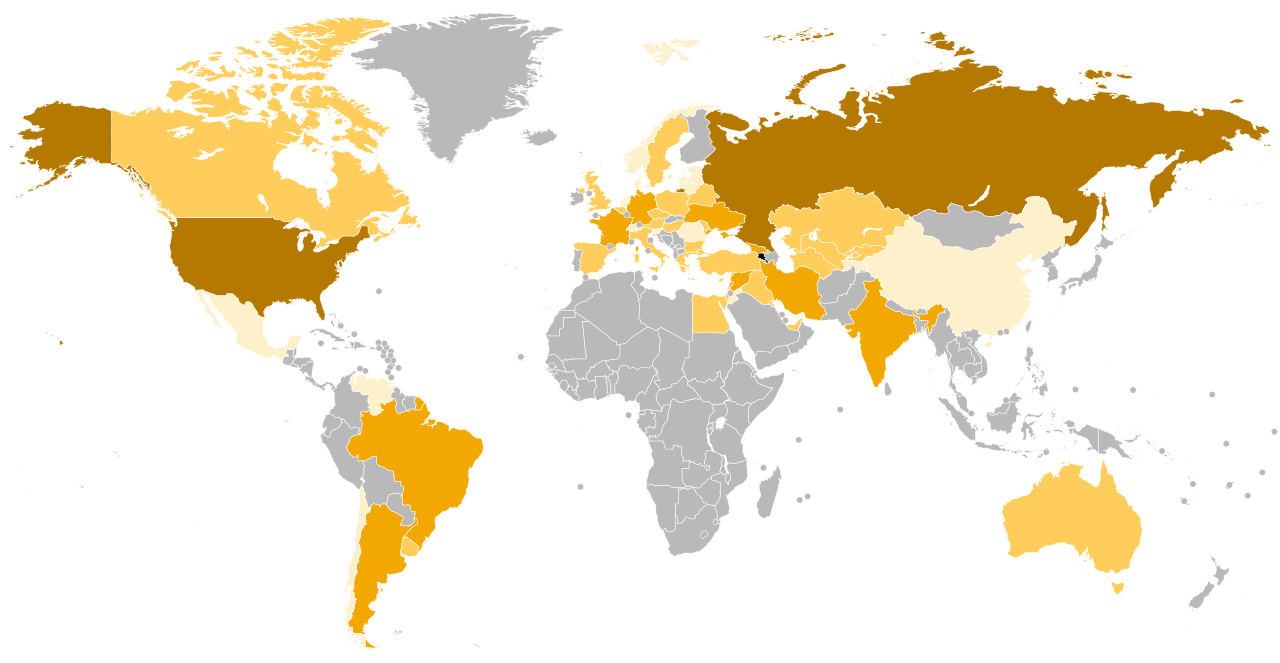It’s the Diaspora, Stupid
By Khatchig Mouradian
Whether it is border disputes or animosities between peoples, you always have one entity to blame: the Diaspora. That is the context in which many Turkish intellectuals perceive Turkish-Armenian relations.
Never mind that the Armenian Diaspora cannot all be chunked into a monolithic whole. Intricacies like that are hard to fathom for some, who have grown up in a country where one official version of early 20th century Turkish history is taught, and where Armenians have been portrayed as evil collaborators that committed genocide against the Turks!
Since the Diaspora was formed chiefly after the tehcir (Turkish for deportation—not genocide, mind you), it is a no-brainer: Diasporan Armenians, the descendants of the “disloyal” Ottoman Armenians, are evil collaborators still, plotting to create animosities between Turkey and Europe, Turkey and the U.S., Turkey and Armenia.
The Diaspora is pushing the Genocide recognition agenda, these Turkish intellectuals argue, and dragging Armenia along with it. They think if Armenia is “left alone,” it would forget about the Genocide—(although most Armenian citizens are descendents of Genocide survivors themselves)—and beg forgiveness from Turkey for all the “headaches” their Diasporan cousins have caused.
Should Armenia also accept a Turkish mandate?
“Steps like opening up the Armenian border will overpower them [the Armenian Diaspora]. A tough, confrontational response, on the other hand, is actually what the Diaspora wants,” said Meltem Cakýr of TUSIAD (the Turkish Industrialists’ and Businessmen’s Association) in an interview that appeared in part in the Feb. 22 issue of the Turkish Daily News (TDN).
Kaan Soyak, co-chair of the Turkish Armenian Business Development Council (TABDC), was quoted in the Jan. 8 issue of the Milliyet as saying that if Turkey were to approach Armenia with the intention of normalizing relations, Armenian authorities would be ready to:
a) Agree to Ankara’s suggestion of forming a joint historians’ commission.
b) Recognize the current border between Turkey and Armenia.
c) Withdraw from Nagorno-Karabakh following security guarantees agreed upon through the Minsk process with Turkey’s participation.
d) Stop supporting Genocide resolutions in various parliaments.
Such concessions, in return for an “intention of normalizing relations,” are completely unrealistic. It is clear to most political actors in Armenia that even the intention to withdraw from Karabakh on the part of Armenia’s current or future leaders would lead to public outrage and scenarios reminiscent of the last weeks of Ter Petrossian’s reign.
Dashnak Dictatorship
In a Feb. 8 article titled “Armenia Needs a Better Course,” TDN columnist Semih Idiz wrote, “The Dashnak mentality continues to prevail in Yerevan, mostly due to the promptings of the Armenian diaspora. … The victory the Dashnaks believe they are scoring against Turkey is Pyrrhic [a victory with devastating cost to the victor] and will continue to be much more so in the future as Ankara takes less notice of pressure from the West.”
“Surely there are sound minds in Yerevan that see this and desire a different kind of understanding if relations with Turkey are to open up in ways that really make a difference for Armenia,” Idiz concluded.
Gunduz Aktan, in an article titled “Gross Injustice,” published on Feb. 17 in the New Anatolian, wrote, “Today, Armenia is a Dashnak dictatorship. But it dares to urge us to expand freedom of expression. Not a single book that denies the genocide claims is sold in Armenia.”
The above might be flattering to some of the ARF’s supporters, but like most of what Aktan says on Turkish-Armenian relations, they are exaggerations and misrepresentations at best.
Moving in next door
Now imagine what these intellectuals were thinking when the Armenian Parliament passed the first reading of the dual citizenship bill.
On Feb. 22, Sedat Laciner, head of the International Strategic Research Organization in Ankara, told Zaman: “We can easily say that the Armenian Diaspora is moving in next door and Armenia can no longer be described as an independent country.”
“Ter Petrossian was always careful about not letting the Diaspora as well as Russia intervene in the domestic affairs of his country,” Laciner added, noting that Kocharian, in contrast, is acting in line with the Diaspora’s policies.
In the following weeks, the dual nationality issue will, undoubtedly, generate a lot of discussion and concern within Turkey. It was always convenient to try to separate Armenia from the Diaspora and to try to neutralize the other with different tactics. But as the ties between the two wings of the Armenian nation have become stronger, our “next door” neighbor has begun to realize that they are between a rock and a hard place.








Comment